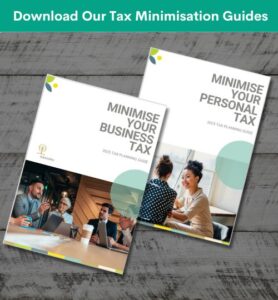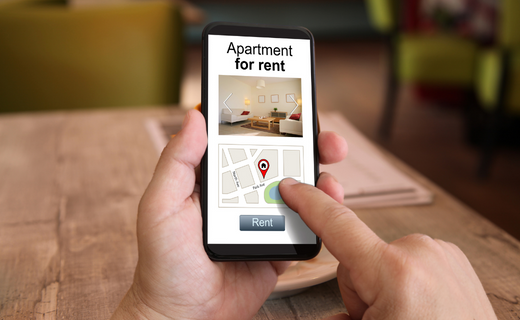Tax time is fast approaching, and the Australian Taxation Office (ATO) is again urging rental property owners to be extra careful in preparing their tax returns this year.
One of the ATO’s four key areas of focus is income and tax deductions from rental properties ATO Random Enquiry Program found that nine out of ten tax returns that reported rental income and deductions contained at least one error. Rental property owners are therefore urged to carefully review their records before declaring income or claiming deductions this tax time, and registered tax agents are encouraged to ask a few extra questions of their clients.
Our tax specialists have prepared the following article to help rental property owners ensure they are compliant.
1: Include All Rental Property Income
The ATO collects rental income data from various sources, making it easier to identify undeclared rental earnings. When lodging your tax return, ensure you include all rental-related income, including:
- Short-term rental arrangements (e.g., Airbnb, Stayz)
- Renting out part of your home
- Insurance payouts for lost rental income
- Rental bond money retained
NEW in 2025: Don’t forget about the Victorian Short-Stay Levy—a $5-per-night charge introduced on short-term stays from January 1, 2025. If you earn income from short-term rentals, ensure you factor in this levy and maintain accurate records. Read more about this here.
2. Claiming the right expenses at the right time
Not all rental expenses are the same. Some costs can be claimed straight away, and others over several years. Let’s break this down for you here:
What expenses can you claim straight away:
- rental management and body corporate fees
- council rates
- cleaning
- repairs and maintenance (fire alarm checks, service calls, lawn mowing and gardening)
- interest on loans, and
- insurance premiums
- painting after a tenant moves out
What expenses are claimed over several years:
- capital works or improvements (renovations, extensions, new kitchens, bathrooms etc)
- purchase of assets (installation of a new refrigerator, air conditioner, installing a new spa)
- replacement of an entire structure or unit of property (such as a complete fence or building, a stove, replacing kitchen cupboards)
If you have either recently renovated an investment property or have acquired an investment property that was recently renovated by the previous owner, it may be worth considering a quantity surveyor analysis to investigate what can be claimed.
What expenses can’t be claimed:
- Refinancing or redrawing on a rental property loan for private expenses such as holidays or a new car means that the amount of interest relating to the loan for the private expense cannot be claimed as a deduction.
- Expenses incurred whilst family or friends stayed at the property. Say for example you arranged for a cleaner to clean the property after you or a family member stayed there over the school holidays.
- Acquisition and disposal costs of the property
- expenses not incurred by you, such as water or electricity usage charges borne by your tenants
- The cost of certain second-hand depreciating assets.
- You can’t claim travel expenses if traveling to inspect a residential rental property. (For more information on this, please read, ‘The common misconceptions regarding rental properties – what you can and can’t claim?’.
3. Holiday Rental Properties
If you rent out your holiday home when you’re not using it, be aware of the ATO’s strict rules. You can only claim deductions for the portion of expenses related to rental income.
For example:
- If you rent out the property for six months and use it personally for the other six months, you can only claim 50% of eligible expenses.
- If you block out peak holiday periods for personal use and only rent it out occasionally, your deductions must be adjusted accordingly.
- With increasing scrutiny on short-term rental deductions, accurate record-keeping is crucial to avoid ATO scrutiny.
For more information, we suggest you read our article ‘The common misconceptions regarding rental properties – what you can and can’t claim?’.
4. Keeping accurate records is key
Proper record-keeping is essential for ensuring all eligible deductions are captured and that capital gains tax (CGT) is calculated correctly when you sell.
What records should you keep?
- Purchase and sale records for five years after disposal
- Rental income statements
- Expense receipts (e.g., repairs, maintenance, council rates)
- Loan statements showing interest deductions
Starting strong with well-organized records will simplify tax time and ensure compliance with ATO requirements.
How can Morrows Help?
Our Morrows tax advisers have detailed knowledge of the tax laws relating to rental properties and are here to help. However, the ATO has clearly stated that the responsibility of record keeping and reporting is on the individual property investor.
So please, reach out to your advisor if you need assistance or you are unsure of what you are entitled to claim and what income needs to be reported.

Want to learn how to minimise your tax in 2025?
Our advisors have prepared two 2025 Tax Minimisation guides. These guides outline the various strategies we can consider to help reduce your personal or business tax bill this financial year.
Fill in your details below, to gain access to these FREE guides.





